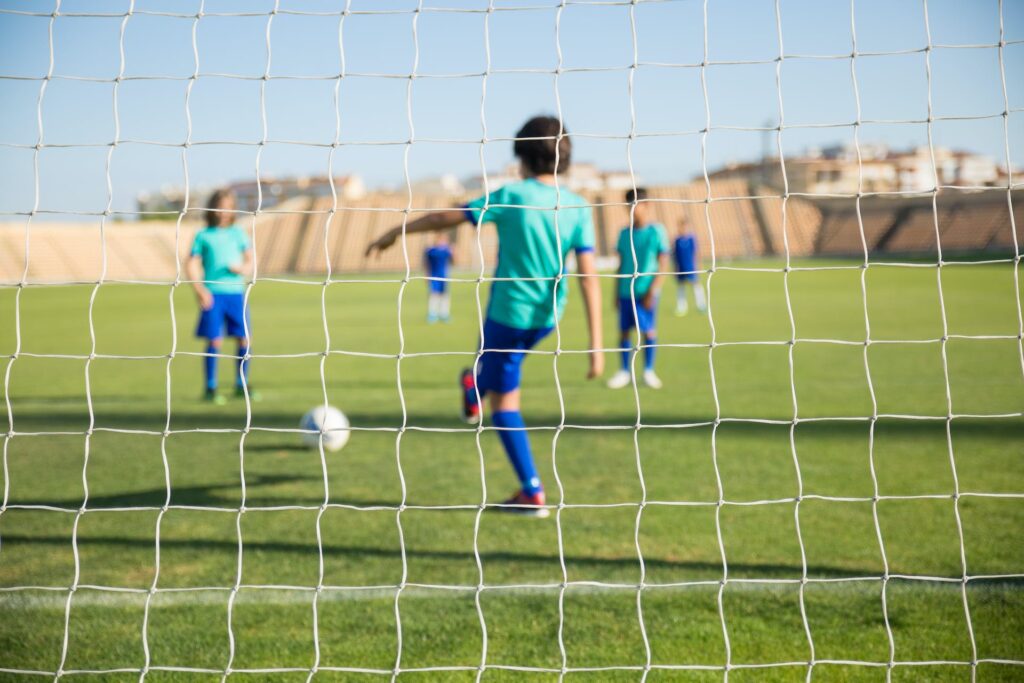In the heart of South Africa, the vibrant tapestry of school life is interwoven with the threads of sportsmanship and teamwork. School sports in South Africa are more than just physical activities; they are a vital component of education that fosters holistic development in learners. In this blog, we’ll explore the various sports played in South African schools, introduce the concept of SuperSport Schools, and uncover the best sports schools in the country. Most importantly, we will delve into the profound benefits of schools sports for learners and why they should be encouraged, not coerced, to participate.
The Diverse Landscape of Schools Sports in South Africa
South African schools offer a wide array of sports to cater to the diverse interests and talents of their students. From the adrenaline-pumping rugby and cricket to the graceful art of netball and hockey, there is something for everyone. Athletics, soccer, tennis, swimming, and even chess have found their place in the school sports arena. This diversity ensures that learners have the opportunity to explore and excel in sports that resonate with their individual preferences and strengths.
SuperSport Schools: A Game-Changer in Schools Sports
SuperSport Schools is a remarkable initiative that has played a pivotal role in shaping the landscape of school sports in South Africa. Launched in partnership with SuperSport, the leading sports broadcaster on the African continent, this program aims to uplift school sports and provide young talents with a platform to shine. SuperSport Schools offers comprehensive coverage of school sports events, transforming local competitions into televised spectacles and allowing students to experience the thrill of playing in front of a nationwide audience.
The Best Sports School in South Africa
While South Africa boasts many exceptional sports schools, one institution stands out as the paragon of excellence: Grey College in Bloemfontein. Founded in 1855, Grey College has a rich heritage of producing outstanding athletes. It has consistently ranked among the top schools for rugby, cricket, and athletics in South Africa. What sets Grey College apart is its unwavering commitment to nurturing young talent, both on and off the field. The school’s motto, “Nihil stabile Quod Infidum” (Nothing is steadfast which is not true), encapsulates its ethos of teamwork and camaraderie.
Here are the ranking of the best sports schools: https://letabaherald.co.za/10651/and-the-top-65-sport-schools-are/
Benefits of Schools Sports for Learners
- Physical Fitness and Well-being:
Participation in schools sports promotes physical fitness and a healthy lifestyle. Learners develop strong muscles, stamina, and flexibility. Regular physical activity also helps in maintaining a healthy body weight, reducing the risk of obesity-related diseases, and enhancing overall well-being.
- Character Development:
School sports teach important life skills such as discipline, perseverance, and teamwork. Learners learn to set goals, work towards them, and handle both victories and defeats gracefully. These qualities are invaluable in all aspects of life.
- Improved Academic Performance:
Contrary to the misconception that sports detract from academics, research suggests that active participation in schools sports can actually improve academic performance. Learners who engage in sports often exhibit better concentration, time management, and problem-solving skills.
- Social Skills and Friendships:
School sports create a sense of belonging and foster friendships that can last a lifetime. Learners develop social skills as they interact with teammates and opponents. They learn to communicate effectively, resolve conflicts, and build strong bonds.
- Stress Relief:
Sports provide an excellent outlet for stress and anxiety. Engaging in physical activity releases endorphins, which are natural mood lifters. Learners can unwind and rejuvenate through sports, enhancing their mental health.
- Goal Setting and Achievement:
Setting and achieving goals in sports instils a sense of accomplishment and self-confidence in learners. Whether it’s scoring a goal, breaking a personal record, or winning a championship, these achievements empower students to believe in their capabilities.
Here is a link to read in-depth about the benefits of schools sports, movement and physical activity in general for children.
Encouragement over Coercion: Fostering Independent Learners
The key to reaping the benefits of school sports lies in encouragement rather than coercion. Learners should be motivated to participate in sports based on their interests and passions, not subjected to pressure or force. Here’s how schools can effectively encourage learners to embrace sports:
- Offer a Variety of Sports: Schools should provide a diverse range of sports options to cater to different interests. This allows learners to choose activities they genuinely enjoy.
- Celebrate Participation: Recognize and celebrate every learner’s participation in sports, regardless of their skill level or performance. Acknowledging effort encourages continued engagement.
- Create a Supportive Environment: Foster a culture of inclusivity and support where learners feel safe to explore sports without fear of judgment or criticism.
- Educate About the Benefits: Teach learners about the numerous advantages of sports, emphasizing not just physical health but also mental, emotional, and social well-being.
- Showcase Success Stories: Share stories of successful athletes who began their journey in schools sports. This can inspire learners to pursue their passions.
School sports in South Africa are a powerful vehicle for nurturing independent learners. With a wide array of sports to choose from, initiatives like Super Sport Schools to amplify talent, and institutions like Grey College setting a high standard of excellence, learners have the tools they need to thrive. The benefits of schools sports, including physical fitness, character development, improved academics, social skills, stress relief, and goal achievement, are undeniable.
As we move forward, let us remember that encouragement and support are the keys to unlocking the potential of learners through sports. By offering opportunities, celebrating participation, and educating learners about the multifaceted benefits of sports, we empower them to make independent choices that lead to a healthier, more fulfilled life.
So, let us champion school sports in South Africa, not as a mandatory obligation but as an inspiring journey that learners embark upon willingly, reaping the rewards for a lifetime.
By: Herold
| Mainstream schools | Open Minds Campus |
| Standardized curricula and textbooks are prescribed. | Flexible curriculum that can be customized to individual interests and needs. |
| Teacher-centred approach; instruction is primarily spoon-fed. | Student-centred approach; active learning, discussion, and exploration are encouraged. |
| Emphasis on standardized testing, marks, passing or failing grades | Emphasis on Mastery |
| Primarily focused on academic achievement and exam results. | Focus on academic mastery, and emotional, social, and physical well-being. |
| Regimented grade-by-grade learning. 12 year schooling system. | Emphases on flexible individual Progress with British exit exams for matric once ready. |
| Large class sizes are common. | Smaller class sizes allow for more personalised attention. |
| Structured learning environment | Diverse learning environment |
| External control through marks, fear of failure, rewards and punishment. | Emphasis on intrinsic motivation, curiosity and a love for learning. |
| Uniform approach that may not cater to individual learning styles. | Tailored to individual students, respecting their unique needs and preferences. |
| Potential for high stress due to lots of homework, exams and competition. | Efforts to reduce stress and motivate through a balanced and supportive environment. |
| Limited focus on life skills beyond academics. | Integration of life skills such as problem-solving, critical thinking, and emotional intelligence. |



